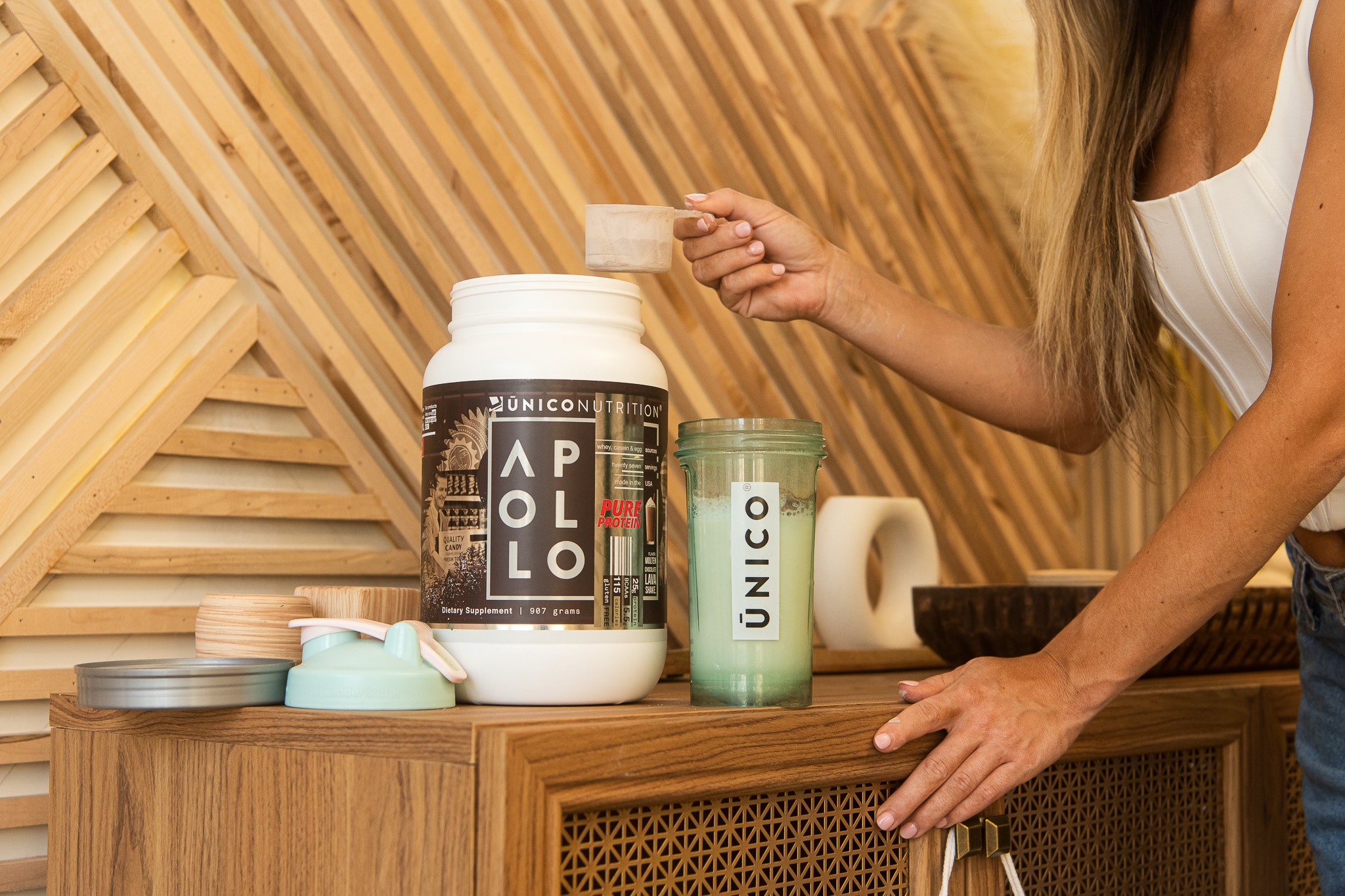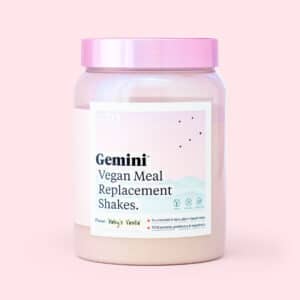Protein is one of the most scrutinized macronutrients for anyone setting out on a new diet or fitness regimen.
But not all proteins are made equal…nor do they digest the same way.
In fact, choosing different types of protein for different scenarios according to their rate of digestion can have an enormous impact on both your diet and physique.
In this post we’ll compare how some of the most common types of protein digest, and what that means for you.

Let’s just say it’s February, and you’re still refining your New Year’s diet plan.
Maybe you’re choosing a ketogenic, or low-carb diet…
Or maybe it’s a paleo diet, focused on whole foods and healthy veggies…
No matter which diet it is, you are certainly going to make sure that you get an adequate amount of protein per day, to ensure you are staying energized, and strong.
Not All Proteins Are Alike
But before simply lumping all sources into one category, you want to keep in mind that not all proteins are alike.
Proteins can be fast, slow, or even intermediate digesting.
A variety of factors can also impact digestion rates.
But why does this matter?
Because the digestion rate of proteins can influence your health in different ways.
Understanding Protein Digestion
Since protein is an integral part of building and repairing body tissue and cells, it is essential to your diet.
However, proteins are large nutrients known as macronutrients composed of unique combinations of amino acids.
These amino acids are linked together in thousands of combinations to create different proteins.1
Because of their size, they must be broken down for the body to absorb them.
This process of ‘breaking down’ macronutrients is called digestion and occurs in the stomach.
When protein enters the stomach, acids and pepsin enzymes are released.2
These two chemicals work together to break the links connecting amino acids.
As a result, individual amino acids and smaller protein units are created, absorbed in the small intestine.2
Once absorbed, these acids and protein units are distributed into cells to perform various functions.
This process can occur at a fast, intermediate, or slow speed, which can be affected by a variety of factors2, including:
- Food source of a protein
- Protein length
- Presence of fatty acids, carbs, or fiber
In addition, the digestion speed of a protein may provide insight into how it can benefit your overall health.2
What are Fast Digesting Proteins?
Fast digesting proteins enter the intestines for absorption relatively quickly after eating them.
These proteins typically complete the digestion process within 1-2 hours.2
The faster the digestion rate of a protein, the faster your body can use these amino acids and protein units.
Quicker delivery of protein sub-units is most beneficial for repairing damaged cells and tissues.2
Fast-digesting proteins are great for repairing muscle tissues that have been damaged during intense exercise.2
In addition, these proteins can also aid in building muscle mass.
The Best Fast-Digesting Proteins
Consider adding either of these common, and effective fast-digesting proteins to your diet to help improve energy levels, and boost muscle recovery.
1. Whey Protein
Whey protein is derived from milk and is one of the most popular protein supplements.
It is also the fastest digesting protein available.
A 20 gram serving of a powdered whey supplement typically takes just 2 hours to digest and absorb.3
This protein is popular amongst those who engage in intense exercise to build muscle mass, due to its fast absorption rate.3
Foods that are high in naturally-occurring whey protein are:
- Milk
- Cottage Cheese
- Yogurt
- Ricotta Cheese
NOTE: Some cheeses can be high in fat and other calories, so if you are using protein for weight loss, you might want to opt for a low-fat cottage cheese.
Keep in mind that a quality protein powder can also be a fantastic source of whey protein, while offering the convenience of a shake.
2. Pea Protein
Pea protein is another great fast-digesting protein option that is both vegan and lactose-free.
Though its digestion rate is not as fast as whey, scientific studies have determined that pea protein delivers similar muscle performance and building benefits.
Like whey, pea protein contains the branched-chain amino acid leucine, stimulating protein synthesis.4
Whereas pea protein powder delivers 2 grams of leucine per 25 grams serving, whey has 2.65 grams.4
3. Brown Rice Protein
Brown rice protein is another vegan protein option.
When consumed as a formulated powdered supplement, it contains all essential amino acids.
Brown rice protein does not digest quite as fast as pea protein, or whey protein, but is more of an intermediate variety.
It takes between 2-4 hours to digest due to its fiber content fully.5
This intermediate digesting protein can assist with tissue build and repair but also aids in maintaining fullness after a meal longer than fast digesting proteins.5
In addition, brown rice protein supplements can also ease body inflammation joint with tissue damage.5
When Should You Take Fast-Digesting Protein?
Timing your protein consumption can make a huge difference in your results.
You’ve probably heard that the best time to drink a protein shake is often right after a workout – especially for competitive athletes.
That’s because protein shakes contain fast-digesting whey protein, which helps rebuild the damaged muscle tissue.
Regardless of your daily protein requirements, you should aim to consume 20 grams or more of a fast-digesting protein either before, or after a hard workout.
What are Slow Digesting Proteins?
While fast digesting proteins take 1-2 hours to digest, slow digesting proteins – also called ‘time-release proteins – are broken down over extended periods.
Typically, it takes 4+ hours for these proteins to digest.2
The delayed digestion of these proteins is caused by numerous factors that make the breakdown of these large molecules more difficult.
The length of the protein molecule and the presence of other nutrients are among the factors that make ‘slow-digesting’ proteins ‘slower’.2
The benefits of slow digesting proteins include muscle building, but these slower proteins also aid in maintaining general muscle health.
They can repair damaged tissue and preventing muscle breakdown – known as muscle catabolism – while you sleep.2
All proteins also aid in supporting your hormones and the endocrine system, which are essential to your overall health.
6 Healthy Slow-Digesting Protein Foods
There are many slow-digesting protein food options, but here are the 6 best options that you might consider adding to your daily routine.
All of these slow-digesting protein sources should be available at most grocery markets.
1. Casein Protein
Like whey, casein is a protein derived from dairy products; specifically, milk.
Casein is often used in protein powders and is available in both isolate and concentrate versions.
These proteins contain ample amounts of leucine- making them extremely beneficial for muscle building.
While whey is the fastest-digesting protein, casein is one of the slowest digesting proteins.
It takes nearly 7 hours to be broken down and absorbed into the body.3
FUN FACT: Our APOLLO Protein Powder uses both whey and casein protein together to deliver sources of both fast and slow-digesting protein.
Casein is a hydrophobic molecule, meaning it is a molecule that is essentially ‘afraid of water.’
As a result, when casein is introduced to the stomach, which obtains a high water concentration, and stomach acid, the protein forms gel-like clots.3
These clots take an extensive amount of time for the stomach to break down, which slows down stomach emptying and delays absorption.3
Due to its slow digestion rate, the consumption of casein-containing foods improves muscle mass and reduces muscle catabolism long term.3
Slow-digesting proteins can also help avoid bloating and other gastro-intestinal discomfort that some of the faster-digesting proteins can cause.
Slow digesting foods with ample casein are:
- Solid cheeses
- Cottage cheese
- Milk
- Yogurt
- Skyer
- Kefir
2. Hemp Protein
Hemp is a plant-based complete protein that is both vegan and lactose-free.
You can find it in whole and ground for and within some vegan protein powders.
Hemp protein has a similar structure and function to whey but has a slower digestion rate that induces less stress on the body to break it down into absorbable units.7
This is primarily due to its compositions of easy-to-break down proteins and amino acids such as:7
- Edestin
- Albumin
- Cysteine
- Methionine
- Arginine
Hemp is the most comparable vegan protein to whey protein when it comes to building muscle, but with the added advantages of lowering blood pressure and reducing cholesterol levels for good heart health.7
3. Nut Butters
Nut butters made out of numerous varieties of nuts contain a large number of proteins, healthy fats, vitamins, and minerals.
High protein nut butters you might enjoy are:
- Peanut butter
- Almond butter
- Cashew
- Macadamia
- Pistachio
Nut butters also contain ample fiber, which is a nutrient that can slow down the digestion process.
Fiber breaks down slowly in the stomach and can delay digestion of macronutrients – like protein – simultaneously.
As a result, amino acids are slowly released from the stomach.8
As an added benefit, the slow digestion caused by fiber can also prolong fullness and stave away premature hunger between meals and snacks.
Just keep in mind- nut butters are quite a bit more caloric than some of the other lean proteins on this list, due to their fat content.
4. Meat-based proteins
Meat is well known for its sizable content of high-quality protein. These proteins are also slow digesting.
While meat proteins do break down slightly faster than casein or casein-containing foods, they are similar in structure and function to casein9.
Slow digesting meat-based proteins include:
- Lean red meats
- Pork
- Poultry (i.e., chicken or turkey)
- Lamb
- Fish and shellfish
5. Fatty fish
While technically another source of meat-based protein, fatty fish are unique in their digestion due to their high content of omega-3 fatty acids.
Not only are omega-3’s beneficial for your health, maintaining proper eye, brain, and heart function, but they can also slow down the digestion process.10
Fats in the stomach delay the breakdown of macronutrients like protein because they do not interact well with your gastrointestinal tract’s ‘aquatic’ – water-containing – environment.10
As a result, fat makes breaking down the bonds between amino acids difficult.
Fats also delay the release of absorbable amino acids and smaller protein units into the intestinal tract.10
While white fish and shellfish obtain some omega-3s, the fattiest fish with the slowest protein digestion rates are:
- Salmon
- Tuna
- Trout
- Swordfish
- Mackerel
- Anchovies
6. Algae
Algae is another plant-based, complete protein that has become popular in the wellness industry.
It is also a slow digesting protein food consumed as an alternative to fatty fish.
Like fatty fish, algae contain omega-3s that slow digestion.
They also provide a variety of vitamins, minerals, and phytonutrients when eaten, which can boost immune health and decrease inflammation in the body.11
Blue-green algae varieties, such as chlorella and spirulina, have the highest protein content per serving. You can also find these in protein powder supplements.
When Should You Eat Slow-Digesting Protein Sources?
Slow-digesting protein sources are excellent options as the cornerstone of any meal.
Protein keeps you full, and keeps your ‘hunger hormones’ in check.
Slow-digesting protein will also provide a steady stream of energy to your body as it metabolizes into amino acids.
The best part about slow-digesting protein is that it helps keep your blood sugar from spiking, which leads to drowsiness.
Sometimes you want to add both slow and fast-digesting proteins into one meal.
Combining Fast & Slow Protein Sources
There are some times when you may want to consider combining both fast and slow protein sources.
Similar to how combining vegan protein sources can provide extra health benefits, the same goes for proteins with different rates of digestion.
Try combining some fast, and slow-digesting proteins to help you feel full longer, and to provide a broader range of nutrients to your body.
Research has also shown that combining a protein shake with both fast and slow-digesting proteins (like whey, and casein) is more effective at re-building muscle than whey alone.12
Summarizing Fast vs. Slow Digesting Proteins
All digestion rates of protein offer different benefits to meet your needs:
- Fast digesting proteins: Muscle building with intense exercise
- Intermediate digesting proteins: Improving fullness
- Slow digesting proteins: Maintaining long term muscle mass
Based on your needs, you can determine the type of proteins that are best for you.
For best benefits to your health, you should include a variety of proteins in your diet.
Both proteins offer benefits to building and maintaining your muscle mass short and long term.
Be mindful about what fast, intermediate, and slow digesting protein foods you add to your day.
You can also choose a protein powder that combines these protein varieties.
Sources:
1https://www.ncbi.nlm.nih.gov/books/NBK224683/
2https://www.ncbi.nlm.nih.gov/pmc/articles/PMC25140/
3https://www.ncbi.nlm.nih.gov/pmc/articles/PMC4924180/
4https://www.ncbi.nlm.nih.gov/pmc/articles/PMC4307635/
5https://www.ncbi.nlm.nih.gov/pmc/articles/PMC4042376/
6https://pubmed.ncbi.nlm.nih.gov/19589961/
7https://pubmed.ncbi.nlm.nih.gov/30599980/
8https://www.ncbi.nlm.nih.gov/pmc/articles/PMC3257631/
9https://pubmed.ncbi.nlm.nih.gov/34169307/
10https://pubmed.ncbi.nlm.nih.gov/16537685/
11 https://www.ncbi.nlm.nih.gov/pmc/articles/PMC5447909/
12https://pubmed.ncbi.nlm.nih.gov/22569072/
Recommended Reading:
- Does Protein Give You Energy? A Registered Dietitian Says ‘Yes’ - December 12, 2023
- Fast vs. Slow Digesting Proteins – Which is Better? - February 20, 2023
- The Top 7 Benefits of Algae – Meet the Sustainable Superfood of the Future - February 8, 2022

